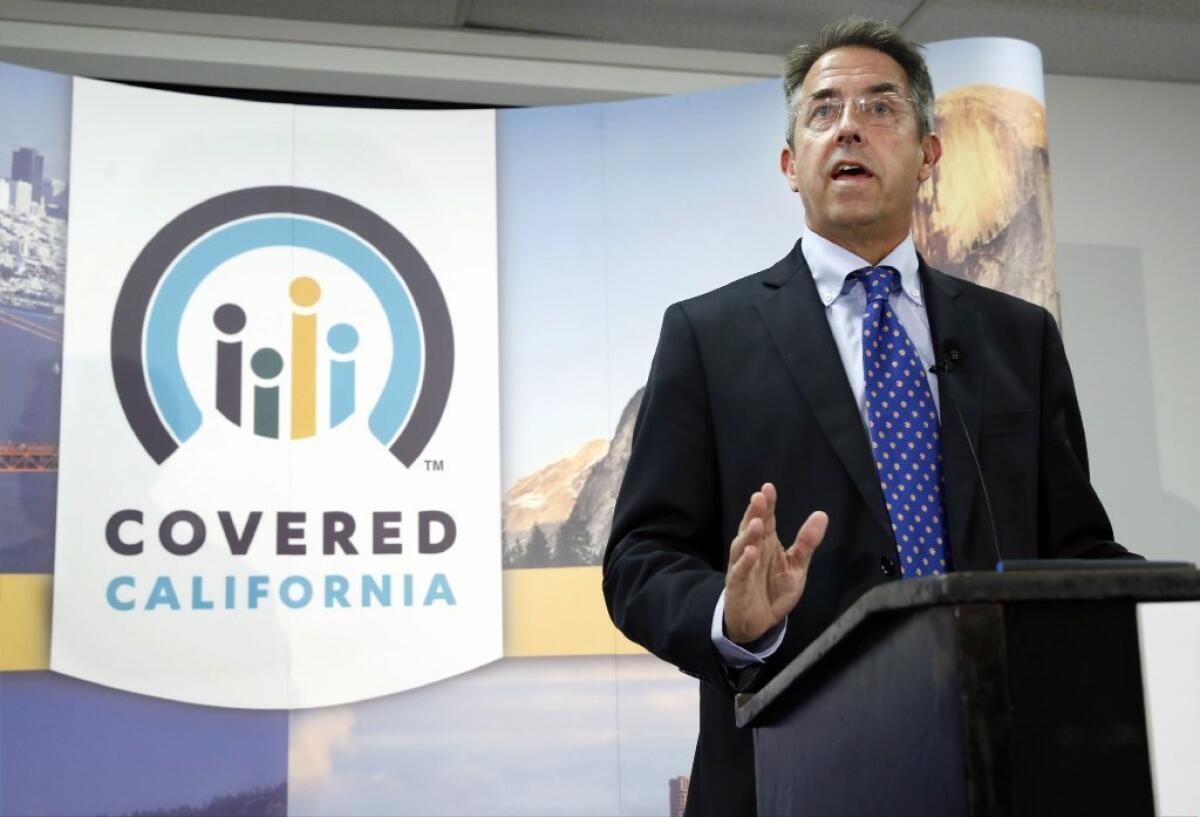Lawmakers criticize hiring of Obamacare enrollers with criminal records

Californiaâs health insurance exchange allowed 31 people with criminal records to be enrollment counselors for Obamacare coverage, drawing fire from Republican lawmakers.
Two state legislators are calling for a hearing on the exchangeâs hiring practices and its efforts to prevent identity theft and fraud.
This move comes as other critics of the Affordable Care Act express concern about the security of peopleâs personal information when they apply for policies through online exchanges or with enrollment workers.
In a letter Wednesday, Assembly Minority leader Connie Conway (R-Tulare) and Assemblyman Brian Nestande (R-Palm Desert) asked the Covered California exchange to explain at a joint legislative hearing why people convicted of forgery, burglary and welfare fraud were permitted to be enrollment counselors.
âWe understand that individuals who have paid their debt to society deserve a second chance, but felons convicted of financial crimes should be disqualified from being hired by the state,â the lawmakers said in their letter.
âAllowing these individuals to have access to private information, such as Social Security numbers, would be like giving an auto thief a set of car keys,â they added.
Covered California defends its background check system. It said it reviewed the age and nature of the offense, the applicantâs age when it was committed and the relation of the crime to enrollment duties.
Full coverage: Obamacare rolls out
The approved applicants âdemonstrated that they have rehabilitated themselves,â said exchange spokesman Larry Hicks. âA zero-tolerance approach for all individuals who have suffered criminal convictions would constitute discriminationâ under federal civil-rights law.
The state exchange provided records that show it approved 31 people with criminal convictions as enrollment counselors from June to late November. Four people with convictions were disqualified.
The National Review reported on the documents Wednesday.
Overall, California has certified 3,729 enrollment counselors statewide so those with criminal records represent less than 1% by this count.
The convictions involved felonies and misdemeanors and many date back to the 1980s and 1990s. The crimes included the sale and possession of drugs, petty theft, perjury, driving under the influence, shoplifting and battery.
One certified counselor had two convictions for forgery in 1988 and a 1998 conviction for domestic violence, state records show. Another counselor had a 1982 conviction for forgery, burglary in 1992 and forgery again in 1994.
These enrollment counselors arenât government employees. Rather, they typically work at nonprofit groups, clinics and other community organizations that help sign people up through the state marketplace.
During the application process, these workers often deal with sensitive information such as Social Security numbers, income tax returns and a personâs medical needs.
Covered California said it is still reviewing the lawmakersâ request and it declined to comment further.
In a related move this week, Assemblyman Jeff Gorell (R-Camarillo) introduced legislation that would bar Covered California from sharing applicantsâ personal information unless consumers give consent.
In December, The Times reported the exchange gave its certified insurance agents access to names and contact information for tens of thousands of people who started an online application but never finished.
Some consumers said the practice violated their privacy because they didnât ask to be contacted. Covered Californiaâs executive director, Peter Lee, said last week the program is on hold pending further review.
ALSO:
California wonât extend health plans
Insurers under fire as Obamacare kicks in
California exchange gets $155 million to improve service, enrollment
More to Read
Inside the business of entertainment
The Wide Shot brings you news, analysis and insights on everything from streaming wars to production â and what it all means for the future.
You may occasionally receive promotional content from the Los Angeles Times.











